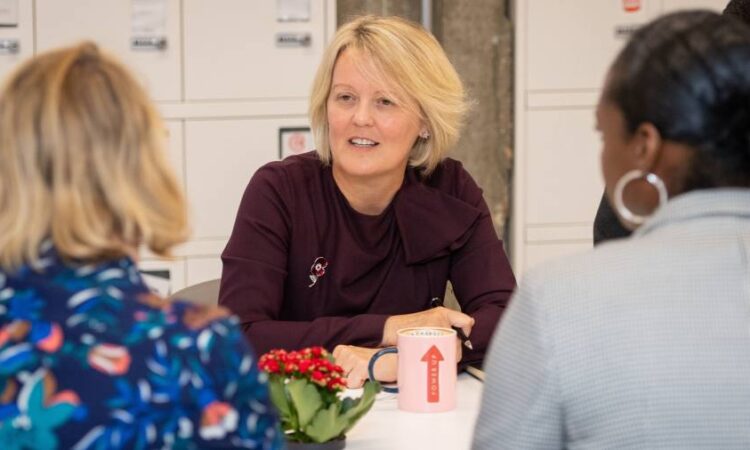
Female entrepreneurs created a record number of new businesses in the UK last year even as financing remained challenging and macroeconomic uncertainty escalated.
In 2022, women in the UK launched 151,603 companies, up from 145,271 in 2021 and more than twice the level in 2018, according to an independent review led by Alison Rose, chief executive of NatWest Group.
“It’s a testament to the resilience and entrepreneurialism of female founders that they are creating more companies than ever before,” said Rose. “By listening closely to entrepreneurs and acting on what they tell us, we will provide backing to help them grow their networks, secure finance and achieve their goals.”
The Treasury commissioned Rose to lead an independent review to better understand the disparity that exists between female and male entrepreneurs. Her first report in 2019 was based on interviews with business leaders, academics, investors, entrepreneurs and a survey of 5,000 people. It noted that £250bn could be added to the UK economy if women matched men in starting and scaling up businesses.
In response the government announced an ambition to increase the number of women launching companies by half by 2030 — equivalent to nearly 600,000 female entrepreneurs.
Last year the ongoing impact of the pandemic, the war in Ukraine, political upheaval and market turbulence provided an uncertain backdrop for UK businesses. Despite the UK weathering the sharpest cost of living crisis in generations better than initially anticipated, inflation remains at elevated levels.
The number of female-led companies grew despite the challenging conditions and represented a fifth of all businesses in the UK in 2022, up from 16 per cent in 2018. However, men are still three times more likely to start a new business than women.
“Female entrepreneurs respond to challenging economic times by establishing new businesses and setting out on their own. Their determination to succeed makes us more certain than ever that we can help realise their potential and grow both their businesses and the UK economy,” said Rose.
The 2019 review found that a lack of funding was one of the biggest barriers to women being able to effectively grow their businesses and this is still regarded as a big impediment.
In the past 12 months, half of female business leaders and entrepreneurs reported finding access to financing and investment difficult, versus 40 per cent for their male counterparts.
“There are many barriers, including lack of diversity in those making funding decisions,” said Ann Francke, chief executive of professional body the Chartered Management Institute.
She added that the review highlighted the need for “more comprehensive and affordable childcare solutions, and relief for those with caring responsibilities” which would “help not only female entrepreneurs but all women, to achieve more in the world of work”.
About 190 financial services institutions — some of the UK’s largest banks, venture capital firms, angel investors and other financial services organisations, including private equity and pension funds — have committed to improve access to funding for women, up from 134 a year ago. They represent more than £1tn in assets under management.
The number of 16 to 25-year-old female company founders has also grown. In 2022, almost 18,000 businesses had founders from this age bracket, more than 20 times the number in 2018.
Despite the increase, the review’s findings echo broader research about how women are under-represented in business. A report from Cranfield University and EY in November showed that, while women now comprise 40 per cent of directors on FTSE 100 boards, there is an “appalling” shortfall of women in executive roles.






